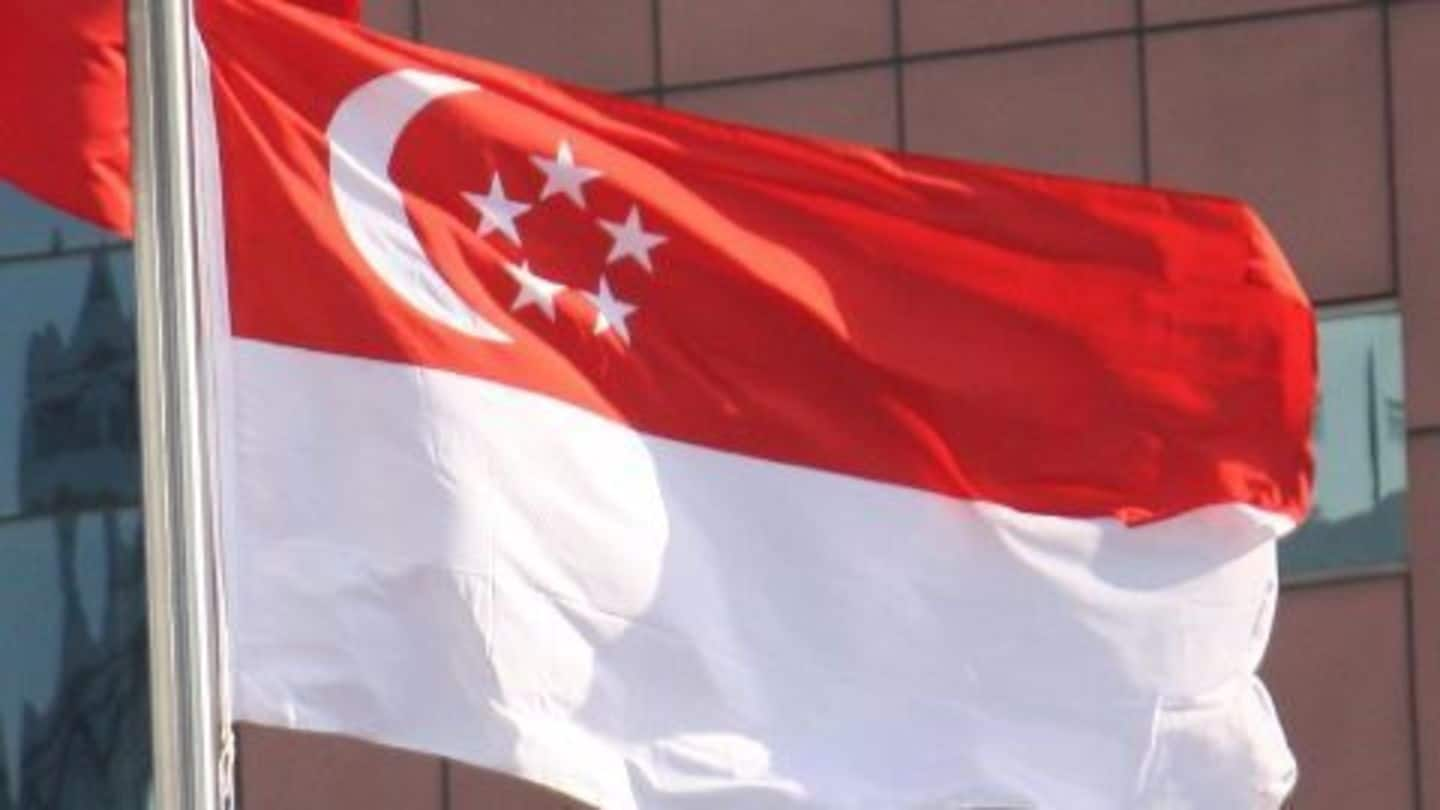
Singapore celebrates golden jubilee with aplomb
What's the story
Nationwide celebrations were held in Singapore to mark its 50 years of independence. Almost 2,50,000 people attended the outdoor parade largely funded by the government with extraordinary flybys by a Singapore Airlines A380 airliner and the air force. In a three hour ceremony, tribute was paid to former founding leader Lee Kuan Yew with a firework display show.
9 Aug 1965
Singapore expelled from Malaysian merger
Post the 16 September 1963 merger with North Borneo, Sarawak and Malaya, Singapore became part of Malaysia. Article 153 of Malaysia's Constitution gave special privileges to Malays which became a source of unease for Singapore. Race Riots (1964) ensued between Malays and Chinese and the bloodshed led to the break between Malaysia and Singapore. On 9 August 1965, Singapore was expelled from the federation.
1965
Challenges for the new and nonviable nation-state
The biggest issues faced by Singapore were housing, unemployment, lack of natural resources and land in general. With the separation, Singapore lost access to Malaysian land and resources and had no traditional source of income. Its unemployment rate (10-12%) was an irksome threat that could cause civil unrest. More importantly, Singapore's reputation for labor disputes and strikes severely jeopardized any form of foreign investment.
1966
Singapore's success credited to its 1st PM
The first Prime Minister Lee Kuan Yew has been widely credited with Singapore's economic success. Yew was Singapore's prime minister from more than 30 years (1959-1990) and transformed Singapore into a 'regional powerhouse'. Known for his blunt, "knuckle duster" approach, under Lee's pragmatic leadership, Singapore went on to become "Asia's most liveable cities". GDP per capita almost doubled and he weeded out corruption entirely.
Do you know?
One country, many extraordinary feats!
Singapore, an unpromising land before independence, is now a thriving cosmopolitan city. It is notable for being one of the cities with the lowest crime rate and the highest gross domestic product per capita in Asia.
1968
Singapore's unique economic model
Known as the ''Singapore model,'' Lee's growth strategy focused on radical deregulation to attract foreign capital. Singapore's chemical industry brought in foreign investors with big tax breaks, simple approval processes and by providing appropriate infrastructure. Similar strategy was used to promote other key industries such as precision engineering, electronics, and later bio-medicine. Understanding the global need, English was considered as 'mother-tongue' and was mandatory.
Information
Singapore loses Yew before 50th anniversary celebrations
Lee Kuan Yew, Singapore's PM for nearly 3 decades passed away on 23 March 2015 at the age of 91. Thousands of people queued up for upto 10 hours to pay their respects.
Quote
PM Loong awed by how far Singapore has come
Singapore's Prime minister Lee Hsien Loong expressed his happiness saying "At 50 years, as we stand at a high base camp, we look back and marvel at how how far we have come."